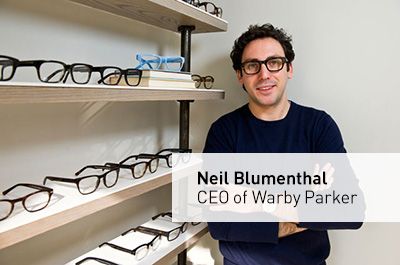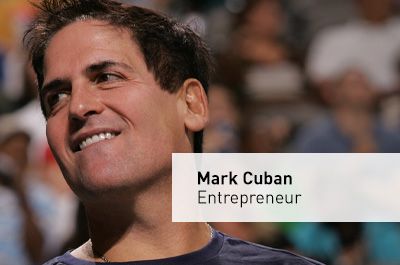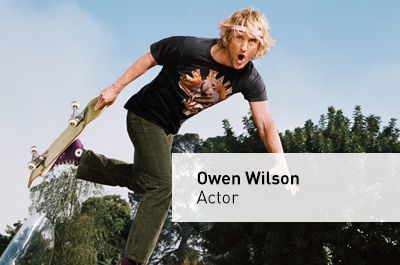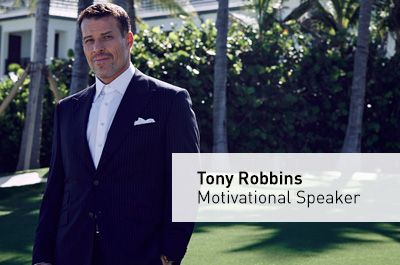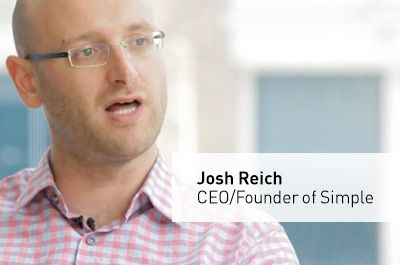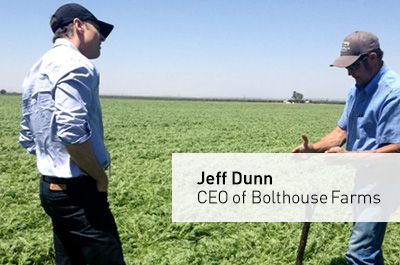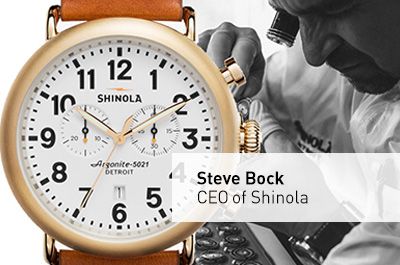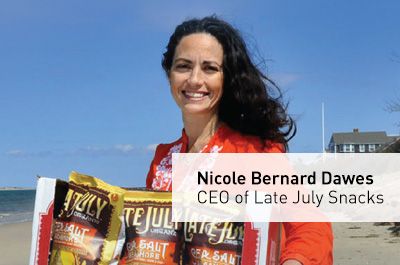
Neil Blumenthal, Founder of Warby Parker
Epic brands are easy to spot. They have incredibly compelling stories about the early days. And they always have super cool founders that dared to buck the status quo and lived to tell the tale. I got to talk to one such founder, Neil Blumenthal, who is also co-CEO of Warby Parker. To say that I love this brand is a bit of an understatement. At 52, I wear Warby Seymours to read and see things close up. I love my Warby glasses like I loved my first Nike Waffle Trainers. In addition to having super cool founders, it seems that great brands also create a feeling state for your experience of the product. Nike always made me feel like a champion just for getting out and hitting the road to run some miles. Warby Parker makes me feel optimistic about the future. For some reason I don’t mind that I am a couple of decades older than their core consumer target. I went to a psychic once who told me that my spiritual age was 30. Warby Parker plays to my spiritual age. I feel like I’m 30-something when I interact with the brand. Mirrors can break the spell. But here’s the cool thing. I only wear them for reading, a very on-brand activity for the company that celebrates “the literary life well lived” and is named after two characters in Jack Kerouac’s Dharma Bums. I also wear my Warby’s for writing. So I am in character now. Happily feeling two decades my junior. Thanks to a brand I love.
moreMark Cuban
He is one of the most influential entrepreneurs of our time. He embodies the spirit of what is possible. He’s smart. Humble. Disruptive. Respectful. Accessible. And incredibly successful. If we do our job well, we’re one or two of these things on a good day. Rarely are we all of them. So we are honored to feature Mark as our cover profile in the inaugural issue of Connect, the TrueCar magazine created exclusively for our TrueCar Certified Dealers.
As we move into our future as a company committed to making car buying simple, fair, and fun, it’s hard to ignore that Millennials are finally starting to become the economic force in automotive that we always hoped they would be. They arrived with a bit of a fizzle in 2013. In 2015, the confluence of a rebounding economy and the fact that members of Gen Y are now having kids has moved them into the second largest car buying demographic, displacing Gen X. They are the first digital natives. They grew up using technology, and they’ll be using TrueCar on their mobile phones to connect with the rare group of dealers that you are. Hence our name: Connect. We dedicate this issue of Connect to all TrueCar Certified Dealers. You are changing the way consumers buy cars and are paving the way for the next generation of car buyers.
moreOwen Wilson
With his boyish good looks and mellow style, Owen Wilson is one of Hollywood’s most sought-after stars. Whether he’s playing an astronaut, a cowboy, or the animated race car Lightning McQueen, he’s always Owen—transparently good-natured and effortlessly authentic, traits that endear him to the audience that loves him most—Millennials.
I sat down with Owen for the celeb’s take on everything from his first car to TrueCar. What emerged was a sometimes scattered but wonderfully illuminating mix of quirky insights and Zen-like wisdom.
Find out why, as the new voice of TrueCar, Owen speaks for the next generation of car buyers.
Lucas: Hey, Owen. Thanks for making this happen. I know you’re often in exotic places doing amazing things, so I really appreciate you giving us this time.
Owen: Of course.
Lucas: In American culture, we have this love affair with the open road—the promise of it.
Owen: You know, it’s a big rite of passage, when you get your driver’s license… you get independence… freedom. I think kids still have that belief. It’s something that’s uniquely American, that kind of love of the open road. And it also speaks to the very American idea that you’re free to invent yourself. And that’s the promise of this country: the pursuit of happiness. I think a big part of that pursuit is the open road—it’s how you get there.
moreTony Robbins
Insights from arguably the most inspiring life and business coach of all time.
My wife and I did his Personal Power program more than 20 years ago. We called the 800 number right off the television offer and two weeks into the course, our lives were changed for the better beyond our wildest imaginings. He has endured for over 30 years because his principles work. What follows isn’t a pitch for Tony’s program. It’s a conversation with a man at the epicenter of disruption about the role transparency plays in business and in our personal lives. The importance of trust. And ultimately, love.
Lucas: Thanks for sitting down with me, Tony. I’ve followed your career with admiration for quite a while now, and I know that you have followed the rise of TrueCar for a long time as well. We have seen that consumers identify with truth and transparency as a cornerstone of the TrueCar brand, on a very deep level. Do you think that we’re living in a period of time where brand transparency is becoming a precondition for consumer engagement, particularly among the Millennial generation?
Tony: We live in a world of radical transparency. There is nothing that’s really truly private long-term in the world we live in today. And while there’s something lost from that, there’s something gained. And the gain is an incredible priority on the truth. And in business, I believe truth is the ultimate advantage. I mean, it’s truth, and it’s trust. You can’t separate those two. Truth is the ultimate advantage because, if you have the truth, you can win out because— in a world where we’re all connected with social media and every other form through the web—we now live in a world where the truth will eventually get out. Now, if you go on the web, you can get every lie known to man as well. So the technology that empowers also can confuse. But I think there’s a resonance to the truth, as corny as it may sound, that every human being feels. You know when somebody’s bullshitting you. You know at some level it’s not the whole story. There’s something being held back. It’s instinctive in human beings. And not only do you take that and you magnify that with the interconnected world that we live in today in social media, now you’re at a place where if you don’t tell the truth, the consequences are just horrific.
moreSimple CEO and Founder, Josh Reich
I had the pleasure of chatting with Simple CEO and Founder, Josh Reich, at their headquarters in Portland, Oregon. The Simple thesis, is well, simple. The current financial system confuses people and that is a contributing factor to the high debt rate in our country. Make banking transparent and easier to understand and you do more than help build better financial practices for people, you help build people up. I love Simple. I want my daughter to bank with Simple, because they are in business to do more that just make money, they exist to teach about money. That’s empowering.
moreBolthouse Farms CEO, Jeff Dunn
There’s a certain liberty that comes from having enough money to know your family is going to be OK. And perhaps you can afford even more daring when you know they’ll be more than OK, no matter how many people you piss off on your way to doing the right thing. Jeff Dunn knows a few things about that. He did well at Coca-Cola as the head of North and South America. But at some point in his mid life he realized that doing well wasn’t enough, particularly when doing well is at the expense of fellow humans.
Jeff Dunn is one of the most important people in the food conversation because he comes from the belly of the beast and he’s had a change of heart. He’s also super smart, arguably one of the best marketers in the industry, and has a clear vision for how we need to take back the health of the planet. As Dunn puts it, “It starts with reducing the amount of crap we consume in favor of eating more plant-based foods.” Easy for us west siders to embrace, a lot harder when your kids are hungry and you can fill them up for less than $5 bucks at McDonalds. The problem as Dunn sees it is that the whole junk food industry is subsidized. “McDonalds employees aren’t paid a living wage and need welfare assistance. That’s us paying for that inexpensive food. Then there is the obesity issue and the trillion dollar diabetes issue that will tax us even more.”
moreSteve Bock, CEO of Shinola
Meet the CEO of Shinola, maker of luxury watches, leather goods and bicycles honoring traditional American craftsmanship.
I was sitting with my car friends the other day at lunch. They had just returned from the Detroit Auto Show. Being died-in-the-wool car guys, they know Detroit well. I asked them how the resurgence of the town was going. “What resurgence? Detroit is bankrupt.” I was interested in this subject because after my conversation with Steve Bock, the CEO of Shinola, one of America’s most interesting emerging brands, I heard quite a different version of what is happening in Detroit. Shinola is a maker of vintage watches, leather goods, and bicycles that honor the traditional American craftsmanship that made Detroit a mecca of industry during the turn of the last century. The Shinola headquarters is in downtown Detroit (name bldg.) and they have a vision for a way to make high touch manufacturing a darling of retail that also puts people back to work making products they are proud to stamp their initials on.
It is a countercyclical move in this digital age of hyper-connectivity. But it is making fast friends with consumers that can afford the finest watches on the planet. As well as those that can’t. “Our customers appreciate that our products are hand crafted. We’re using the same quality watch parts as brands that charge three times as much as ours. We’re just not using celebrities and high cost advertising, so we can pass that value on to our customers.” The strategy of Shinola is to make its employees the celebrities - the hard working, high skilled, craftsmen and women that have become a casualty of the post-industrial age. “We want to give people more than jobs, we want to give them careers.”
moreNicole Bernard Dawes, CEO of Late July Snacks
The CEO and founder of Late July Organic Snacks shares the key to winning the war on junk food.
I started my chat with Nicole Bernard Dawes, CEO and cofounder of Late July Organic, by asking the annoying and probably sexist question, “How do you balance being a mom, having a family, and running a company?” In all my interviews with men, I don’t think that question ever even crossed my mind. Nicole’s answer was instructive. “I never had a nanny. I work with my husband and the kids came to work with us until they were 3. Now we take time out of the day to go get the kids at school and 6 o’clock family dinner is something we do almost every night.” As a fellow CEO, I think that’s impressive. I can’t remember the last time I came home for a 6 o’clock dinner.
Family and food seems to be the inspiration and the purpose that drives Late July. Nicole laughs as she recounts how it all began. “Mom had a natural foods store. It was horrendous. Depressing looking food that tasted like cardboard.” It was the late 1970’s. Health food stores and co-ops were the early food-system rebels of a movement that has finally begun to take hold. Hats off to them all. But the food was deliriously unappetizing. “Food is a positive and powerful choice that can influence the world, but I knew we weren’t going to get there if we stayed stuck in my mom’s health food store.” Late July is one of the great companies that believes healthy organic food can actually taste better than the junk food alternative. It’s also a lifeline to parents combatting the billions spent on junk food advertising that makes ‘bad for you’ seem so appealing to our kids. Late July snacks not only taste delicious, they look as appetizing as their junk food brethren. That’s key to winning the war. And I should know. At TR we stock healthy snacks at the office for the employees to help make the healthy choice the easy choice, and all of the Late July snacks are always the first to fly off of the shelves.
more